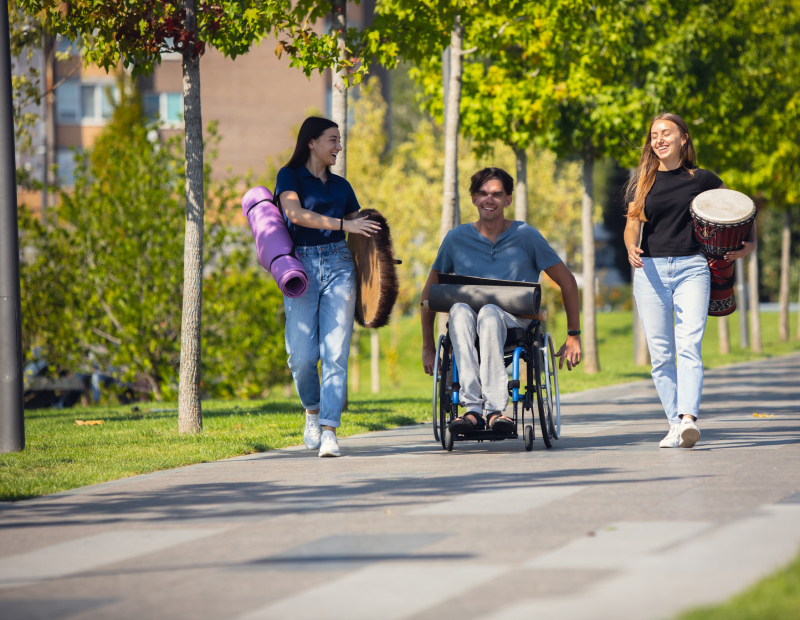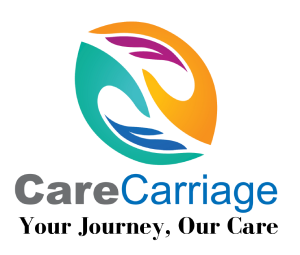
Daily Personal Activities
Daily Personal Activities under the NDIS (National Disability Insurance Scheme) refer to the support and assistance provided to NDIS participants to help them with everyday tasks that are necessary for personal care and maintaining a safe and independent lifestyle. These activities are tailored to each participant’s individual needs and preferences, ensuring they can live a fulfilling life, whether they require full-time assistance or just a bit of support.
Here are the key areas of Daily Personal Activities for NDIS participants:-
1) Personal Care Assistance
- Bathing and Showering : Assistance with getting in and out of the shower, as well as ensuring safety during the bath or shower.
- Dressing: Help with selecting appropriate clothing, getting dressed, or undressed.
- Grooming: Support with brushing hair, shaving, and other personal grooming tasks.
- Toileting: Assistance with going to the toilet, including the use of aids or devices if necessary.
- Dental Hygiene: Support in brushing teeth and maintaining oral hygiene.
2) Meal Preparation and Assistance
- Cooking and Meal Prep: Assistance with preparing meals and ensuring that nutritional needs are met.
- Feeding: Help with eating if the participant has difficulty feeding themselves.
- Special Dietary Needs: Support with meal planning and preparation based on dietary restrictions or preferences.
3) Medication Assistance
- Medication Reminders : Assistance with reminders for taking prescribed medications.
- Organizing Medication: Help with organizing medication or administering it, depending on the participant’s needs.
- Health Monitoring: Support with monitoring health conditions that might require medication management.
4) Household Activities
- Cleaning and Tidying : Assistance with light cleaning tasks such as vacuuming, washing dishes, and keeping the home safe and tidy.
- Laundry: Support with washing, drying, and folding clothes.
- Organizing the Home: Help with organizing personal belongings and creating a comfortable living space.
5) Mobility Assistance
- Getting In and Out of Bed or Chairs: Support with moving from one position to another, such as transitioning from a bed to a wheelchair or a chair.
- Walking and Using Mobility Aids: Assistance with walking, using walkers, or other mobility aids to ensure safety while moving around.
- Transfers: Help with transferring from one place to another, such as moving from a wheelchair to a toilet, car, or bed.
6) Monitoring and Support
- Safety Checks : Regular monitoring of the participant’s safety and wellbeing to ensure they are safe at home and in the community.
- Wellbeing Checks: Checking on the participant's physical, mental, and emotional health, ensuring that their needs are being met.
7) Assistive Technology Support
- Use of Assistive Devices : Assistance with using specialized equipment such as mobility aids, hearing aids, or communication devices.
- Personal Care Aids: Support in using equipment such as shower chairs, toilet aids, or adaptive tools that assist with daily tasks.
8) Communication Support
- Supporting Communication Needs : For participants with speech or language impairments, support with communication tools like speech devices, sign language, or other aids that help them communicate their needs.
How to Access Daily Personal Activities Support
- NDIS Plan: Daily Personal Activities are typically funded under the Capacity Building or Core Supports category in an NDIS plan. If you’re a participant, this support will be included in your approved plan based on your individual needs.
- Coordination with Providers: Support Coordinators can assist you in finding appropriate service providers to deliver these activities and help coordinate your care.
- Care Workers: The services can be delivered by personal carers, home care providers, or specialized professionals who are trained to provide the appropriate support.
Benefits of Daily Personal Activities:
- Enhanced Independence: Support in daily tasks empowers participants to live more independently, reducing reliance on others and building self-confidence.
- Improved Health and Hygiene: Assistance with personal care, meal preparation, and medication ensures better physical health, nutrition, and hygiene.
- Increased Safety at Home and in the Community: Mobility assistance, safety checks, and proper use of assistive technology reduce the risk of accidents and promote secure living environments.
- Better Quality of Life: Support with communication, grooming, household tasks, and social engagement contributes to overall wellbeing and life satisfaction.
- Tailored, Person-Centred Support: Services are customised to each participant’s needs, preferences, and goals—ensuring meaningful, respectful, and effective care.
